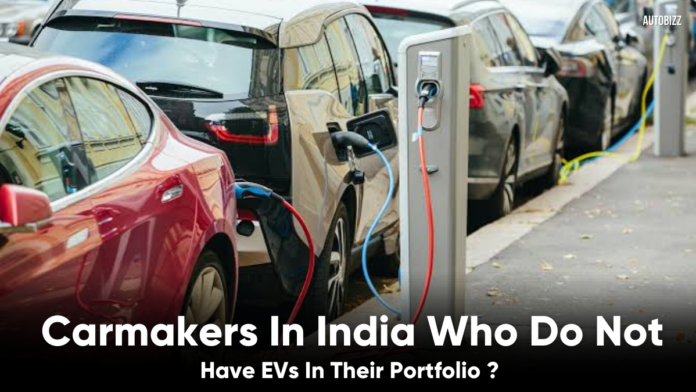EVs appear to be all the rage in India, with over ten models debuted this year and the government supporting subsidies. However, two carmakers are currently refusing to participate.
- Maruti-Suzuki plans on entering the EV market
- Maruti-Suzuki focusing on increasing their CNG and hybrid models
- Toyota focusing on increasing the sales of their hybrid vehicles
Electric vehicles (EVs) are the flavour of the year in 2021. At least ten electric vehicles have been released in the last 11 months, with more on the way in 2022. Consumers are becoming more amenable to the concept of owning an EV as a result of skyrocketing fuel prices, despite the fact that charging infrastructure in most places is at best rudimentary. The few electric vehicles that have made it to India so far have been either small hatchbacks with limited recharge range and performance or pricey plug-in hybrids. Except for the Tata Tiago EV, the most of the EVs released this year were in the mid-range (between Rs 10 – 25 lakhs) and spanning sectors, including SUVs, compact SUVs, and sedans. Even the government has extended its FAME-II subsidies in order to encourage more people to buy electric vehicles for personal use. EVs appear to be here to stay, and every automobile manufacturer is going on board. With the exception of two automakers. What are their names? Continue reading to find out.
1. Maruti Suzuki

At present time, Maruti-Suzuki has no plans to engage the EV competition against other carmakers. They did, however, execute a test drive with 50 Wagon R EVs. However, the company’s head, R C Bhargava, has stated that EVs will be introduced in the nation only after 2025. During their 40th annual general meeting, Bhargava said that the present production cost of electric vehicles makes them uneconomical to sell in significant numbers. Furthermore, several aspects of the EV ecosystem, including as batteries, charging infrastructure, and power supply, are now handled by other parties, and therefore the costing is beyond of the company’s control.
The carmaker’s choice is further supported by the fact that existing electric vehicle sales data have had little influence on Maruti-sales Suzuki’s figures. In the face of rising gasoline prices, the firm is currently focusing on delivering CNG and hybrid solutions to its clients.
2. Toyota

Toyota, a Japanese automaker, is another business that has no imminent intentions to completely enter the electric car market. Toyota has made significant investments in hybrid technology and hydrogen fuel cells throughout the years. Although there were not many hybrid automobiles in India, Toyota’s hybrids such as the Prius and Camry were popular options across the world, and their sales helped to disseminate greener technology. However, after betting too heavily on hybrids, Toyota President Akio Toyoda is now concerned about how the changeover to EVs may result in job losses in the Japanese auto sector. Also, uncertain about the future of EVs 5 years ago, Toyota did not invest early enough into EVs and so, is continuing to pitch the case of hybrids. It did release the Lexus ux300e as a rival against Tesla Model 3 last year, but there has been little noise since then.
3. Kia

While the South Korean automaker has plans to join this market, it presently does not have any electric vehicles in its lineup. The corporation has a global plan to bring in electric vehicles, and we’ve previously driven the EV6, but there’s some hesitancy about bringing it to India since the Indian market has yet to mature and establish a good foundation for electric vehicles.






